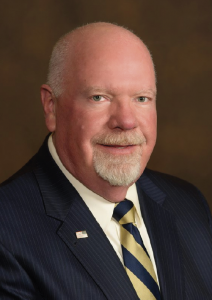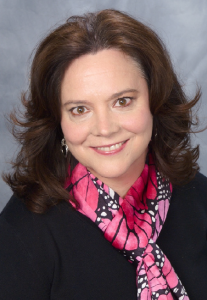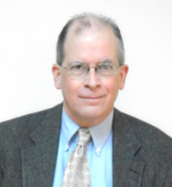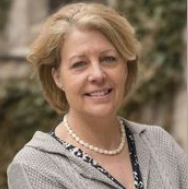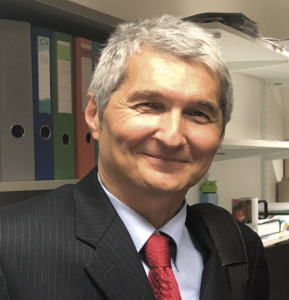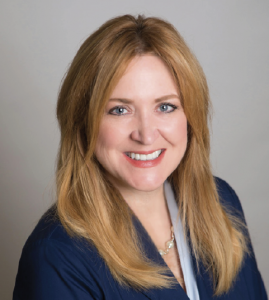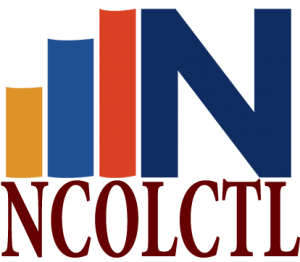 This conference aims to pursue a new pathway for advocating innovative approaches in research and practices, maximizing professional exchanges and collaboration among LCTL educators, and leveraging resources and strengths in the less commonly taught languages community. We cordially invite researchers, educators, practitioners, program developers, and administrators in the LCTL community organizations to attend the conference.
This conference aims to pursue a new pathway for advocating innovative approaches in research and practices, maximizing professional exchanges and collaboration among LCTL educators, and leveraging resources and strengths in the less commonly taught languages community. We cordially invite researchers, educators, practitioners, program developers, and administrators in the LCTL community organizations to attend the conference.
Time & Location
April 26, 2019 – April 28, 2019
Holiday Inn & Suites Atlanta Airport North
Click to download a copy of the program
Speakers
Senator Howard Stepheson
Monolingualism: A Threat to U.S. National Security
ABSTRACT: Monolingualism is the illiteracy of the 21st Century and state and federal leaders in the United States are doing little to address it. Former Utah Senator Howard Stephenson will explore solutions to ensure wide scale adoption of measures to address the nation’s bilingual shortages for international commerce, national security, and defense. As sponsor of Utah’s highly successful Dual Language Immersion program, Stephenson is uniquely qualified to describe how the Utah model can be scaled to all 50 states and how critical languages can become common, not rare and why less commonly taught languages should be part of the mix. When all state departments of education fulfill their responsibility to provide millions of bilingual high school graduates each year, the United States will be far more secure in the world.
Linda Egnatz
The Global Seal of Biliteracy: Celebrating and Credentialing ALL Language Learners
ABSTRACT: The Global Seal of Biliteracy is excited to offer its bilingual credentials to language learners of all ages, including those in colleges and universities who have not been able to earn a Seal of Biliteracy until now. The Global Seal certifies language learners for workplace-ready skills in two or more languages as demonstrated through externally validated testing. Strengthening the concept that language learning is meaningful for real-world purposes, the Global Seal of Biliteracy awards can be transcripted as a storytelling tool.
The main goals of the Global Seal are accessibility and opportunity for all language learners by providing meaningful certification of skills. In keeping with the recommendations of the AAAS Study, America’s Languages, the program has already been impactful in recognizing and raising awareness of less commonly taught languages and community-based heritage language schools. The Seal of Biliteracy as an intentional outcome-based recognition tool is already demonstrating its power to increase the availability of tests and testing opportunities in smaller, but no less passionate language communities.
Dr. Scott McGinnis
Enabling Final Learning Outcomes in LCTLs: Challenges and Solutions
ABSTRACT: The present plenary session will address the issue of organizing LCTL curricula around enabling final learning outcomes. In that approach syllabi are reverse-designed starting with enabling (can-do statements) based on the ILR or ACTFL scale, then proceeding to formative and summative assessment, and ending with the design of class activities. The main purpose of this session is to make the audience familiar with the challenges and solutions in transforming more traditional language programs into those with tangible and measurable enabling final learning outcomes. The first presentation is a report from the government language-learning services, which have been systematically involved in these efforts for many years now. The second presentation discusses a large-scale initiative involving numerous LCTLs at universities across the country. The final presentation is devoted to an ongoing effort to transform language teaching at one of the largest language programs in the country (with over 8,000 students). The presentations will be followed by general discussion moderated by the presenters, where all participants will get an opportunity to ask questions that are of relevance for their particular setting.
Can-dos and oughta-dos: Designing and predicting final learning outcomes for LCTLs within United States Government (USG) settings
The proposed presentation will address two aspects of setting and assessing final learning outcomes within the context of the United States Government (USG) in general, and within programs administered through the Washington Office of the Defense Language Institute (DLI-W) in particular. The former will provide an overview of “can-do”- based self-assessments for speaking, reading and listening proficiency developed by members of the USG language professional community under the auspices of the Interagency Language Roundtable (ILR) in the late 1990s and early 21st century. The latter will present the results of an over decade-long analysis of the DLI-W training matrix used to predict the number of weeks it may take to reach an ILR level based on the category of language. In Fiscal Year 2017 (FY17), DLI-W provided support for instruction in 64 difference languages, 61 of which can be classified as LCTLs.
Catherine C. Baumann
Transforming language pedagogy across LCTLs
ABSTRACT: The University of Chicago Language Center is currently leading two projects – one funded by the Mellon Foundation and the other internally – to transform language pedagogy across LCTLs on their Chicago campus and across the Big Ten and Ivy Plus institutions. The projects enable language instructors to be powerful agents of change in their pedagogical practices. Through professional development activities, we deliver assessment literacy, especially with the Proficiency Guidelines, help instructors identify realistic end-of-sequence outcomes, work closely with them to develop valid and reliable assessments, and impose reverse-design as an overall framework. This talk will focus on the key importance of the operationalization of proficiency outcomes into valid assessment tasks, and then realigning curriculum to orient instruction for success on those tasks. The work we have done in multiple languages across multiple institutions is having a real impact on the ways instructors approach and implement their pedagogy.
Danko Šipka
Danko Šipka is a professor of Slavic languages and head of the German, Slavic, and Romanian Faculty at Arizona State University, where he teaches Bosnian/Croatian/Serbian, Polish, and Slavic linguistics in the School of International Letters and Cultures. He also holds a titular
(presidential) professorship conferred upon him by the president of the Republic of Poland. His previous experience includes stints at the universities of Sarajevo, Belgrade, Poznan, Wroclaw, Warsaw, the Jagiellonian University, and the universities of Munich and Dusseldorf. He has also completed research fellowships at Hokkaido University and the Australian National University. Dr. Šipka served as a senior linguist or consultant to numerous language industry companies. He holds a Ph.D. in linguistics from the U. of Belgrade, a doctorate in psychology from the Polish Academy of Sciences, and an M.A. in Russian from the University of Poznan. Prof. Šipka is an ACTFL-certified Oral Proficiency Tester for Polish and English and a certified interpreter for the IRS, Homeland Security Department, and the Department of Justice. He is also a regular evaluator for the American Council on Education and the Department of Education. He is currently president-elect of NFMLTA. Danko Šipka’s research interests include lexicography, lexicology, lexical and inflectional morphology, computational linguistics, and computer-assisted language learning. His publications encompass over 150 papers and reviews as well as 30 books. His most recent monograph is titled Lexical Layers of Identity (Cambridge University Press, 2019 forthcoming).
How to Quit Non-Enabling Final Learning Objectives Cold Turkey
ABSTRACT:This talk focuses on the opportunities and challenges of the Language Instruction Standardization Initiative, at the Arizona State University School of International Letters and Cultures to establish and assess enabling final learning outcomes based on NCSSFL-ACTFL Can-do Statements for all its language courses (with over 8,000 students). This longitudinal initiative sets and calibrates these objectives while it concurrently develops a cohort of certified testers. The initiative is performed in a highly complex environment, encompassing languages of varied language difficulty, highly enrolled and staffed CTL courses and under-enrolled LCTLS facing paucity of resources. Its eventual goal is to increase quality of instruction, enrollment in under-enrolled languages, and enable course sharing with other institutions. The talk will primarily focus on the experiences relevant for less commonly taught languages, offering solutions that can be replicated in other academic environments and pointing to the pitfalls in the process.
Lisa Ritter
Lisa Ritter currently serves as the President of the Board of Directors for the American Council on the Teaching of Foreign Languages (ACTFL). She spent 25 years with Springfield, Missouri Public Schools where she taught Spanish and served as a coordinator of its International Baccalaureate (IB) Program. As her district’s World Language Curriculum Chair, she planned professional learning opportunities for its teachers across K-12 and six languages.
A National Board-Certified Teacher, Lisa was the 2010 ACTFL National Language Teacher of the Year which has given her the opportunity to work with educators throughout the country. She has previously served as President of the Foreign Language Association of Missouri (FLAM) and on the Board of the Central States Conference on the Teaching of Foreign Languages (CSCTFL).
She received her bachelor and master’s degrees from Drury University and completed study abroad programs in Spain with Purdue University, in Mexico with the University of Missouri and in Costa Rica through the Instituto de Cultura y Lengua Costarricense. Believing in the power of immersion experiences for students, she organized several 25-day study/homestay programs to Costa Rica. She has also led tours for language educators, most recently to Cuba with other ACTFL members and was involved with methods courses at three local universities.
Lead Powerful Learning
ABSTRACT:The best advocacy empowers us to be proactive in creating powerful learning. Focus on your arenas of influence and how to guide language learning, support every learner, and showcase gains in proficiency. Apply high-leverage teaching strategies to boost learners’ performance. Learn from successful examples of guiding learners to make global connections. Every educator is a leader for languages.
Bill Rivers
Bill Rivers has more than 25 years’ experience in culture and language for economic development and national security, with publications in second and third language acquisition research, proficiency assessment, program evaluation, and language policy development and advocacy. He is the immediate past and founding Chair of ASTM Technical Committee F43, Language Services and Products and chairs the U.S. Technical Advisory Group to ISO Technical Committee 232, Education and Learning Services. He serves as a member of the America’s Languages Working Group of the American Academy of Arts and Sciences, and is an honorary member of the Association of Language Companies.
Before joining JNCL-NCLIS, he served as Chief Scientist at Integrated Training Solutions, Inc., a small business in Arlington, Virginia, where he focused on strategic planning, management, and advanced technologies for language and culture programs in the public sector. While
at ITS, he served in a contractor role as the Chief Linguist of the National Language Service Corps. Prior to working at ITS, he was a founding member of the Center for Advanced Study of Language (CASL) at the University of Maryland, and was a staff member of the National Foreign Language Center at the University of Maryland from 1994 to 2003, leaving NFLC as Assistant Director.
During his career, Dr. Rivers has also taught Russian (beginning through advanced), language policy, and second language acquisition at the University of Maryland, worked as a freelance interpreter and translator, and conducted field work in Kazakhstan, where he regularly returns to teach at several universities. He received his PhD in Russian from Bryn Mawr College and his MA, BA, and BS (Aerospace Engineering) from the University of Maryland. He speaks Russian and French. He can be reached at wrivers@languagepolicy.org
LCTLs and Language Activism in Washington, 2019 Edition
ABSTRACT: The 2018 mid-term elections brought the Democratic Party to control in the United States House of Representatives, and in February 2017, the Commission on Language Learning of the American Academy of Arts and Sciences issued its report, “America’s Languages: Investing in Language Learning in the 21st Century.” Subsequently, the Academy established the America’s Languages Working Group, to bring the five recommendations of the Commission to life. Dr. Bill Rivers, Executive Director of JNCL-NCLIS, and America’s language lobbyist, is a member of the Working Group, and will discuss current legislative and societal initiatives to improve the national capacity in LCTLs.

